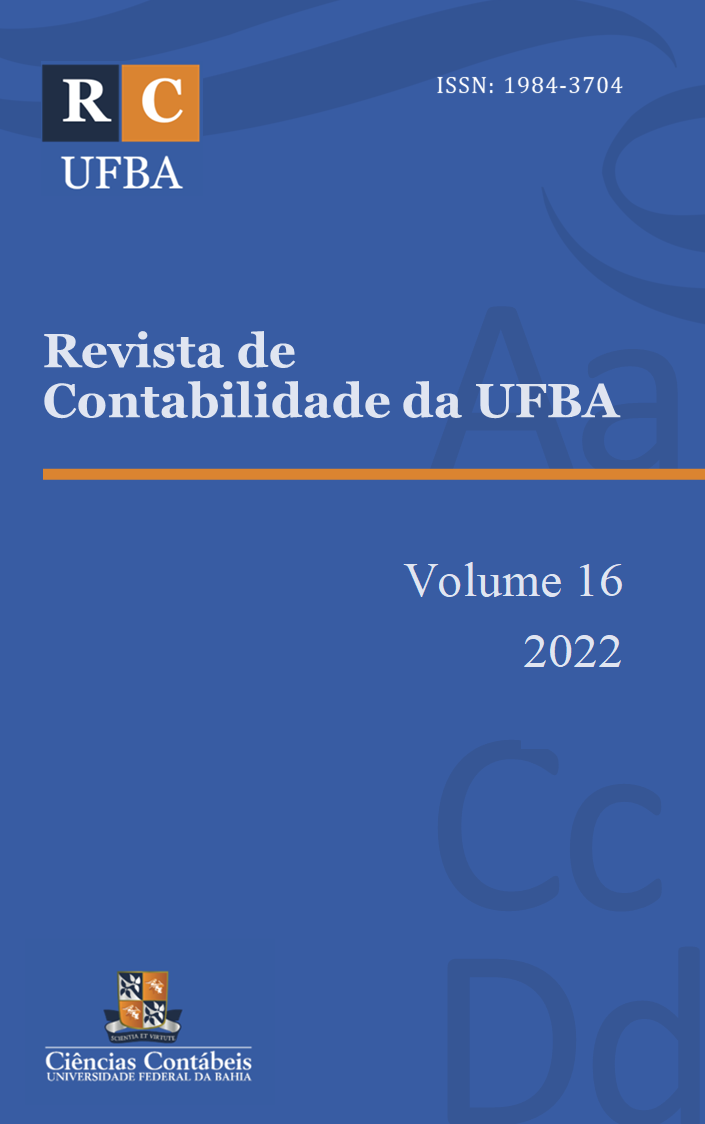ERP Training Evaluation
A state-wide system implementation in Brazil
DOI:
https://doi.org/10.9771/rcufba.v16i1.54099Palabras clave:
ERP Adoption, ERP, GRP, ERP Training, Public sector systemsResumen
The work presented here aims to develop a new methodology to evaluate adherence to an ERP training strategy. We derive our method from the observations from the GRP implementation in Rio Grande do Norte state, Brazil. Our methodology proposal derives from how Event Studies measure the abnormal return of an event within a data metric. In our study, the event is the training provided to employers on using the ERP, while the “return” data is the measured system input made by users who received that training. In our understanding, the training procedures are necessary to ensure the correct usage of an ERP. This understanding of how proper planning may be helpful and cost-effective allows us to claim our main contribution. We expect this methodology and experience may allow ERP trainers to design the appropriate training protocol for the trained group and expected ERP usage.
Descargas
Citas
Amoako-Gyampah, K. (2004). Erp implementation factors: A comparison of managerial and end-user perspectives. Business Process Management Journal.
Armitage, S. (1995). Event study methods and evidence on their performance. Journal of economic surveys, 9(1), 25–52.
Binder, J. (1998). The event study methodology since 1969. Review of quantitative Finance and Accounting, 11(2), 111–137.
Borusyak, K., Jaravel, X., & Spiess, J. (2021). Revisiting event study designs: Robust and efficient estimation. arXiv preprint arXiv:2108.12419.
Choi, D. H., Kim, J., & Kim, S. H. (2007). Erp training with a web-based electronic learning system: The flow theory perspective. International Journal of HumanComputer Studies, 65(3), 223–243.
Doroba˘¸t, I., & Na˘stase, F. (2012). Training issues in erp implementations. Accounting and Management Information Systems, 11(4), 621–636.
Ederington, L., Guan, W., & Yang, L. Z. (2015). Bond market event study methods. Journal of Banking & Finance, 58, 281–293.
Fama, E. F. (1998). Market efficiency, long-term returns, and behavioral finance. Journal of financial economics, 49(3), 283–306.
Fama, E. F., Fisher, L., Jensen, M., & Roll, R. (1969). The adjustment of stock prices to new information. International economic review, 10(1).
Kothari, S. P., & Warner, J. B. (2007). Econometrics of event studies. In Handbook of empirical corporate finance (pp. 3–36). Elsevier.
Krumbholz, M., Galliers, J., Coulianos, N., & Maiden, N. A. (2000). Implementing enterprise resource planning packages in different corporate and national cultures. Journal of Information Technology, 15(4), 267–279.
MacKinlay, A. C. (1997). Event studies in economics and finance. Journal of economic literature, 35(1), 13–39.
McWilliams, A., Siegel, D., & Teoh, S. H. (1999). Issues in the use of the event study methodology: A critical analysis of corporate social responsibility studies. Organizational Research Methods, 2(4), 340–365.
Meghana, H., Mathew, A. O., & Rodrigues, L. L. (2018). Prioritizing the factors affecting cloud erp adoption–an analytic hierarchy process approach. International Journal of Emerging Markets.
Menon, S. (2019). Benefits and process improvements for erp implementation: results from an exploratory case study. International Business Research, 12(8).
Motahar, S. M., Mukhtar, M., Safie, N., Ma’arif, M. Y., & Mostafavi, S. (2018, Mar.). Towards a product independent erp training model: An insight from a literature review. Australasian Journal of Information Systems, 22.
Noudoostbeni, A., Ismail, N. A., Jenatabadi, H. S., & Yasin, N. M. (2010). An effective end-user knowledge concern training method in enterprise resource planning (erp) based on critical factors (cfs) in malaysian smes. International Journal of Business and Management, 5(7), 63.
Osnes, K. B., Olsen, J. R., Vassilakopoulou, P., & Hustad, E. (2018). Erp systems in multinational enterprises: a literature review of post-implementation challenges. Procedia computer science, 138, 541–548.
Prabhala, N. R. (1997). Conditional methods in event studies and an equilibrium justification for standard event-study procedures. The Review of Financial Studies, 10(1), 1–38.
Robey, D., Ross, J. W., & Boudreau, M.-C. (2002). Learning to implement enterprise systems: An exploratory study of the dialectics of change. Journal of management information systems, 19(1), 17–46.
Scott, J. E. (2005). Post-implementation usability of erp training manuals: the user’s perspective. Information systems management, 22(2), 67–77.
Sorescu, A., Warren, N. L., & Ertekin, L. (2017). Event study methodology in the marketing literature: an overview. Journal of the Academy of Marketing Science, 45(2), 186–207.
Volkoff, O., Strong, D. M., & Elmes, M. B. (2007). Technological embeddedness and organizational change. Organization science, 18(5), 832–848.
Wiles, M. A., & Danielova, A. (2009). The worth of product placement in successful films: An event study analysis. Journal of marketing, 73(4), 44–63.
Descargas
Publicado
Cómo citar
Número
Sección
Licencia
Derechos de autor 2022 Revista de Contabilidade da UFBA

Esta obra está bajo una licencia internacional Creative Commons Atribución-NoComercial 4.0.
Autores que publicam nesta revista concordam com os seguintes termos:- Autores mantém os direitos autorais e concedem à revista o direito de primeira publicação, com o trabalho licenciado simultaneamente sob uma Licença Creative Commons Attribution CC-BY-NC após a publicação, permitindo o compartilhamento do trabalho com reconhecimento da autoria do trabalho e publicação inicial nesta revista.
- Autores têm autorização para assumir contratos adicionais separadamente, para distribuição não-exclusiva da versão do trabalho publicada nesta revista (ex.: publicar em repositório institucional ou como capítulo de livro), com reconhecimento de autoria e publicação inicial nesta revista.
- Autores têm permissão e são estimulados a publicar e distribuir seu trabalho online (ex.: em repositórios institucionais ou na sua página pessoal), já que isso pode gerar alterações produtivas, bem como aumentar o impacto e a citação do trabalho publicado.















 This work is licensed under a license
This work is licensed under a license 